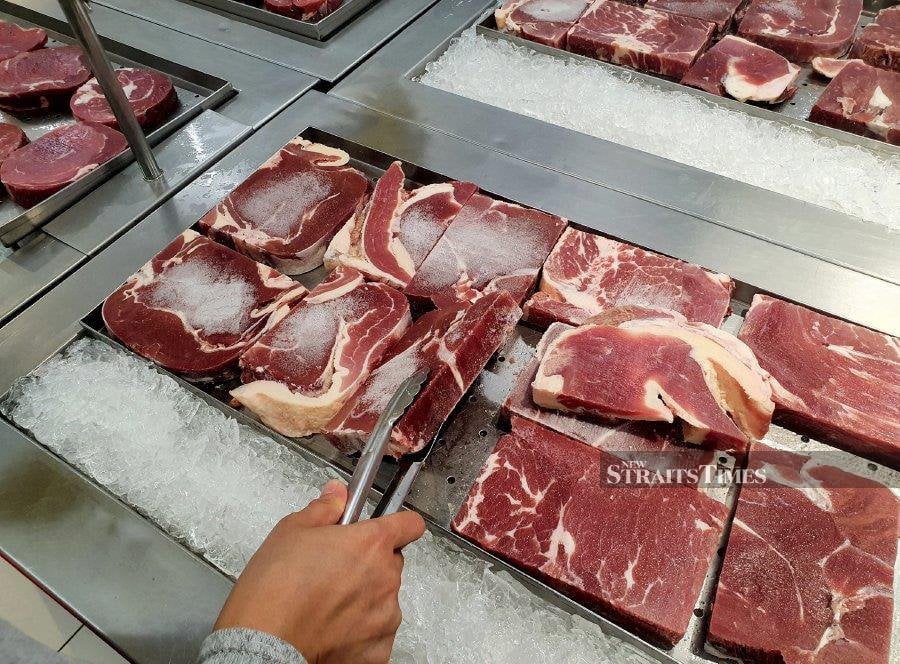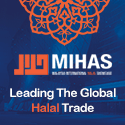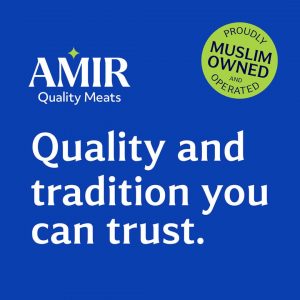
PUTRAJAYA: The Malaysian Quarantine and Inspection Services Department (Maqis) said any party can import frozen meat into the country, even if it is a “proxy” company.
Maqis director-general Saiful Yazan Alwi told the NST and BH that as long as the party fulfilled the criteria and requirement to obtain import permits from the government, it could carry out its business.
“Malaysia is a trading nation, so we welcome those who want to be involved in the import business.”
When asked on the use of proxy companies or “dummy setups”, Saiful said it was allowed.
“Those are just tactics in businesses. If they (business entities) fulfil the permit requirements, that they are allowed to import their supplies,” he said at his office here recently.
On the illegal use of a person’s identity to set up a bogus company, Saiful advised that police reports be lodged.
At the same time, he said the import of frozen beef was unlike the import of chicken meat.
He said the supply of local chicken meat was sufficient to meet domestic consumption, while its import was mainly for manufacturing processed food products.
On the other hand, beef was insufficient to meet local demand.
“We issue permits as a mechanism to control the import of chicken. But it is not the same for beef.
“Local fresh beef supply can meet only 30 per cent of the current domestic demand. That is why we encourage the import of frozen beef.”
However, he said the meat must be only from certified sources and obtained via legal means.
Following the planned amendments to the Maqis Act 2011, Saiful hoped more could be done to stem smuggling.
Thirty-nine amendments were recommended in a paper to be reviewed by the Attorney-General’s Chambers, before its tabling in the Dewan Rakyat.
“With the amendments, we can directly raid the warehouses to take action.”
On a related matter, Saiful said the meat cartels were growing smarter in their strategies to smuggle in uncertified meat.
He said some of the cases involved forged documents, such as health documents and halal certifications.
“This year alone, two of the 149 investigations conducted so far involved forged documents.
“The syndicates will always look for loopholes. The smugglers are smarter than the enforcement unit.”
He said some of the smugglers were industry players themselves who used sophisticated technology to fool the authorities.
“But we manage to see through their plans by holding thorough checks at all entry points.”
Among others, Maqis would take time go through each container and inspect the contents using snake-eye cameras.
They will also liaise with international agencies from the respective countries of origin to ensure the presented documents are legitimate.
“We go container by container, and this leads to long queues at the ports.
“But it is something we have to do, since this involves the issue of halal products.
“So we cannot compromise on this.”
In January alone, the total supply of meat entering the country was 11,000 tons and the total seized was 73 tonnes.
Last month, they also seized 61 tonnes of imported meat.
“We are going hard on this, that is why we launched our monthly raids.
“Our main focus is to reinstil Malaysians’ confidence that what they are consuming is safe and halal, so they can eat with peace of mind, ” Saiful said.
He also assured the public that his senior officials were not corrupt.
This is despite the ongoing allegations following the smuggling of uncertified meat.
He said anyone could lodge a report with the Malaysian Anti-Corruption Commission (MACC) if there was information proving otherwise.
“They can go straight to them (MACC). I will not cover for my officers.
“I trust the integrity of my officers.
“If they are indeed involved in corrupt practices, it would have been impossible for us to succeed in our raids and seizures.”
ARTICLE TWO
Meat cartel scandal: Alleged owner of ‘ghost company’ at risk of legal
KUALA LUMPUR: The use of fronts or proxy companies as a medium to bring in meat supplies from uncertified sources remains as cartels continue to run their illicit activities.
Worse, real persons were named as “owners” and “directors” of these dubious companies, despite their alleged non-existent involvement with the entities, as seen with at least one which was registered under a Bumiputera owner.
The company is legally registered and certified by local authorities as a business entity dealing in and importing agricultural products.
FOR FULL ARTICLE PLEASE GO TO:



